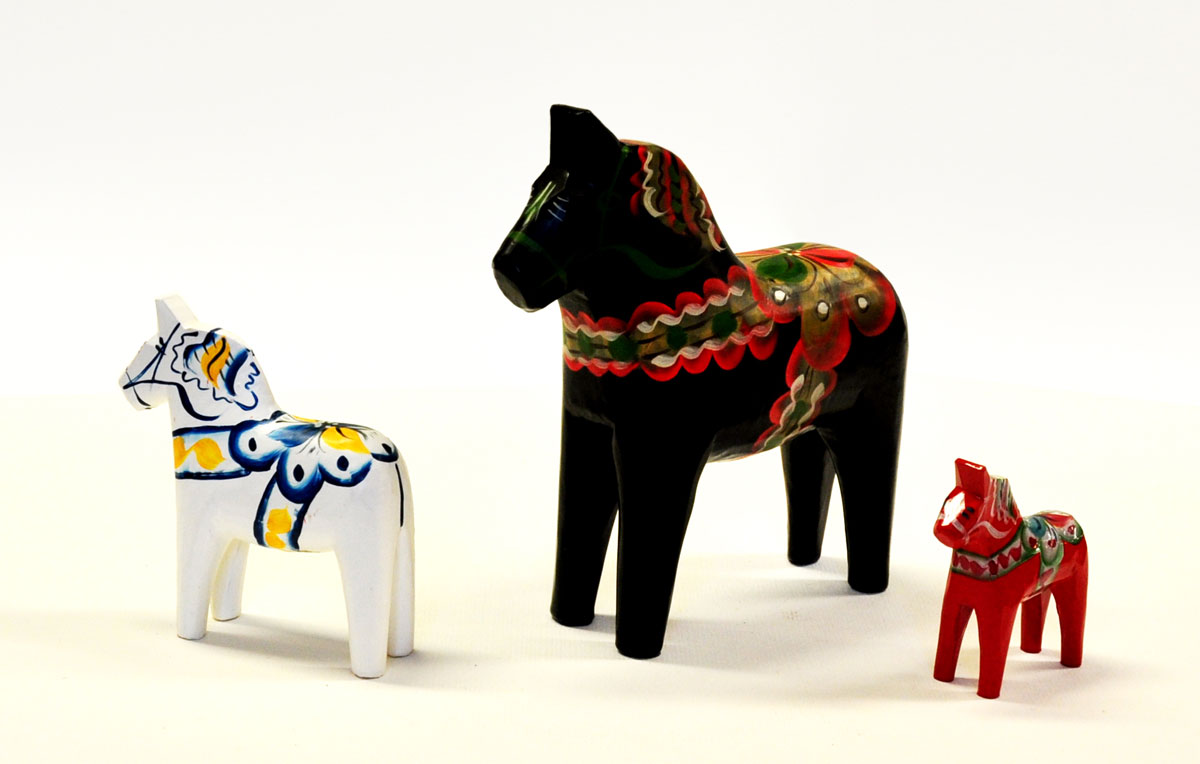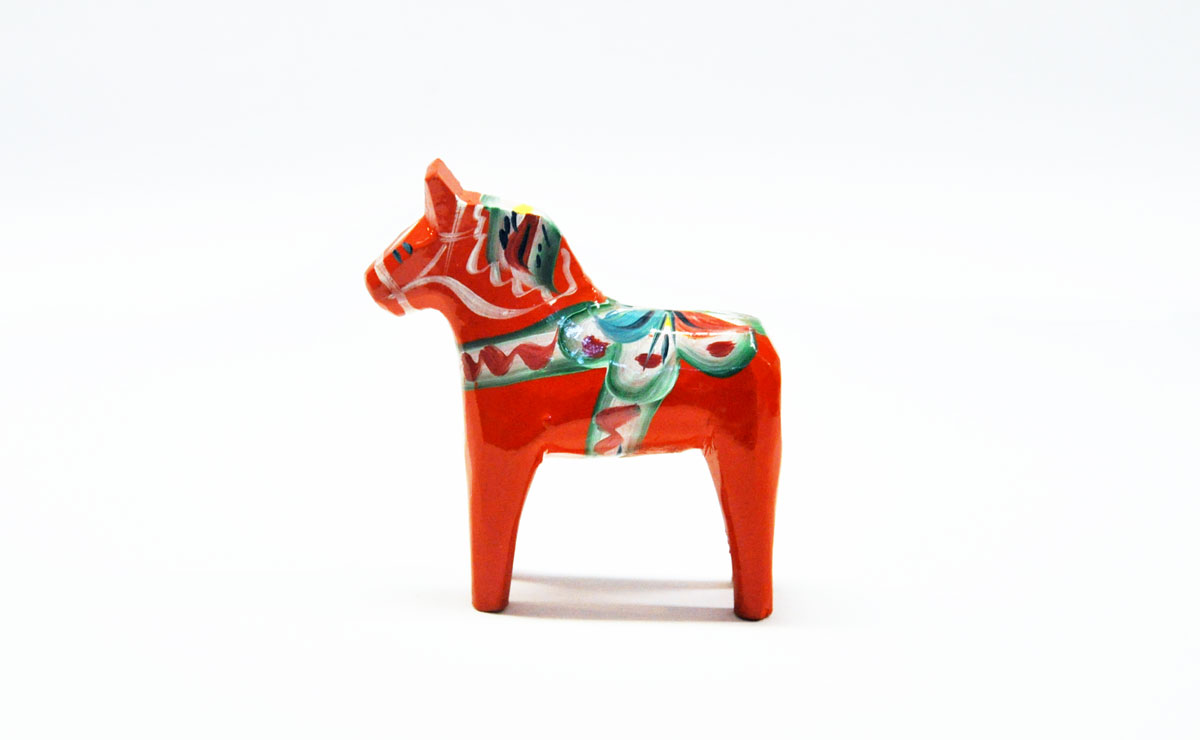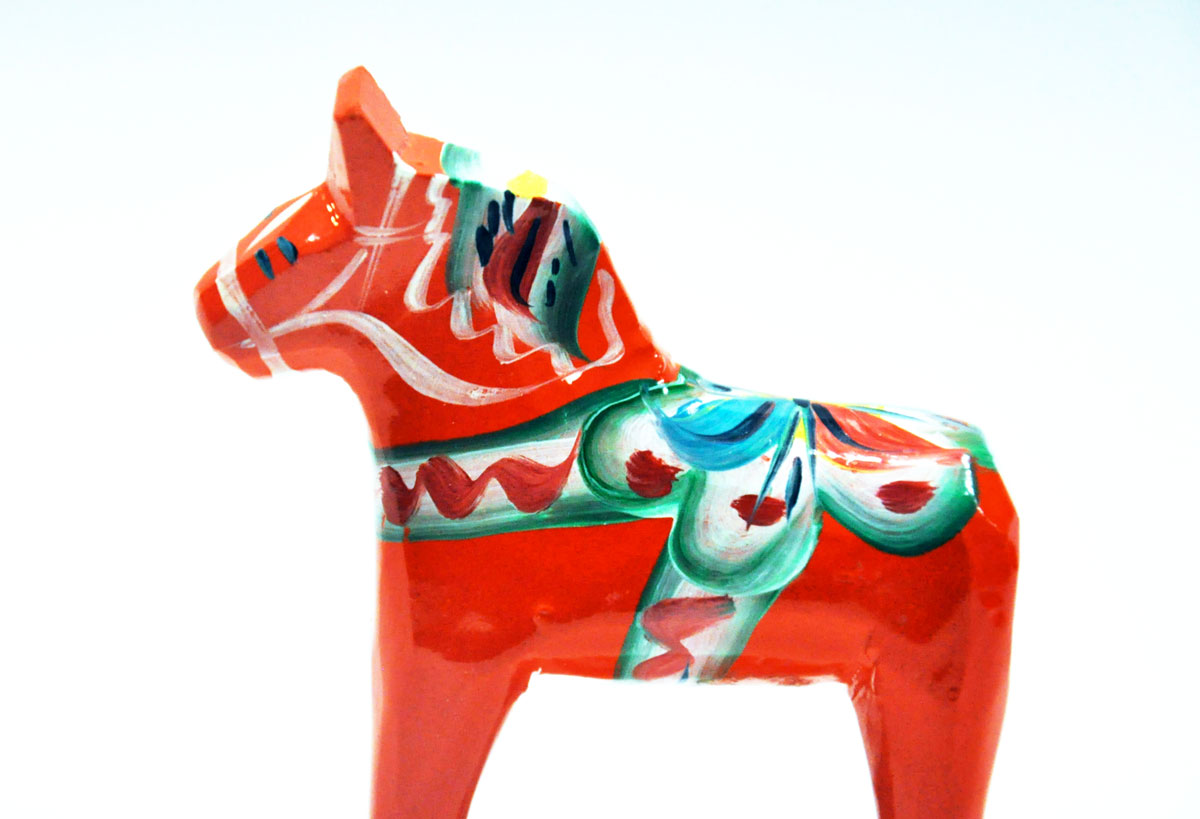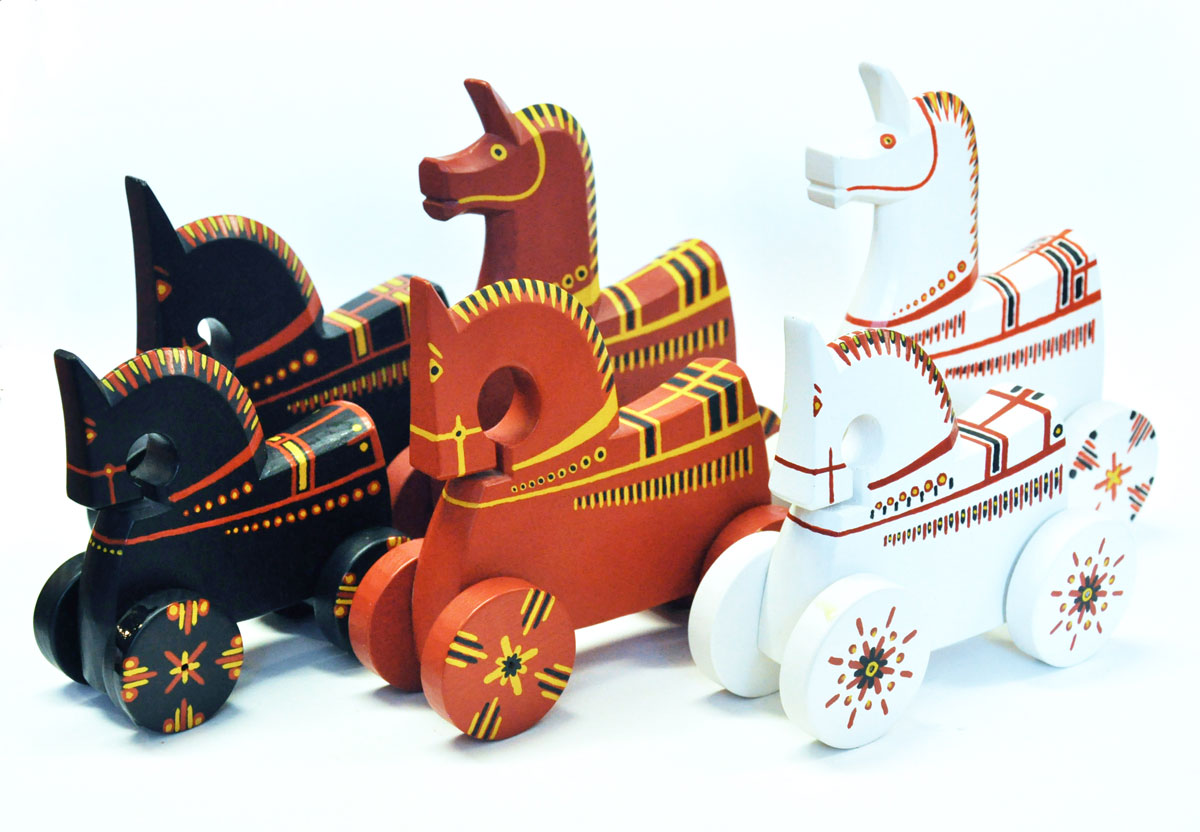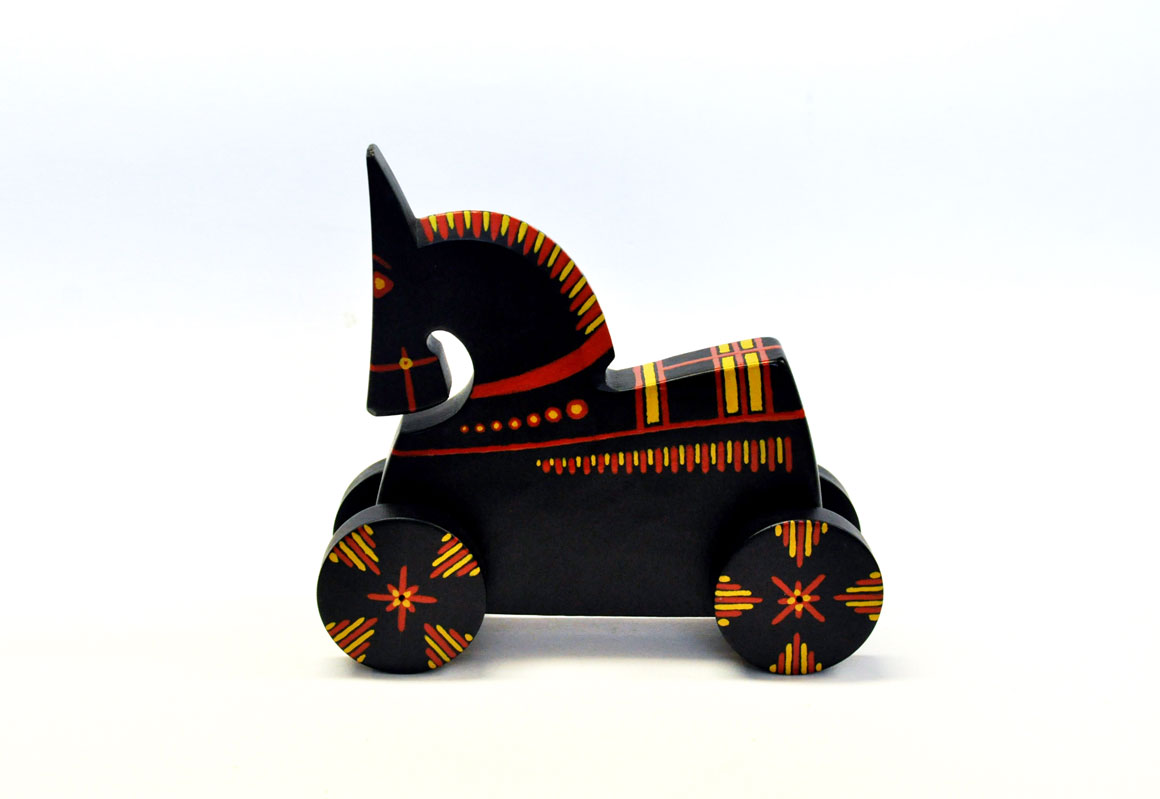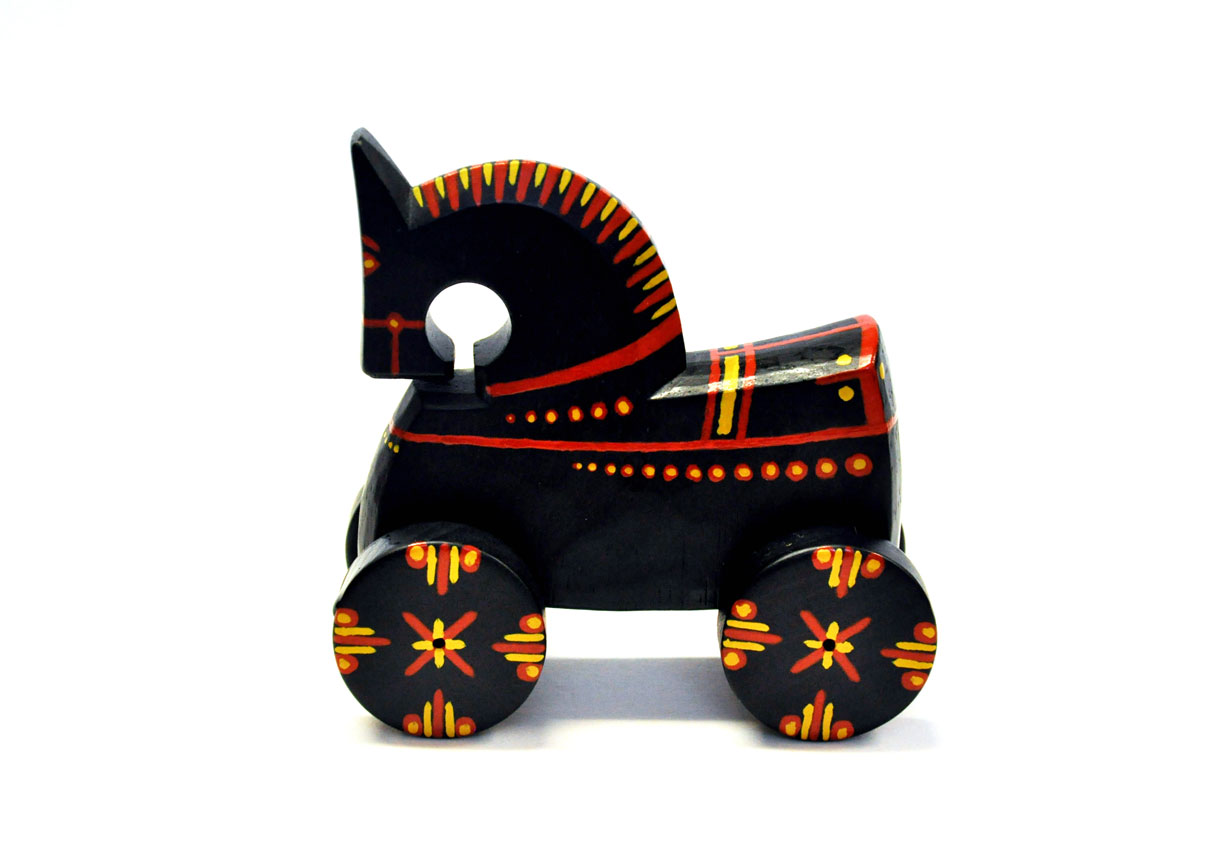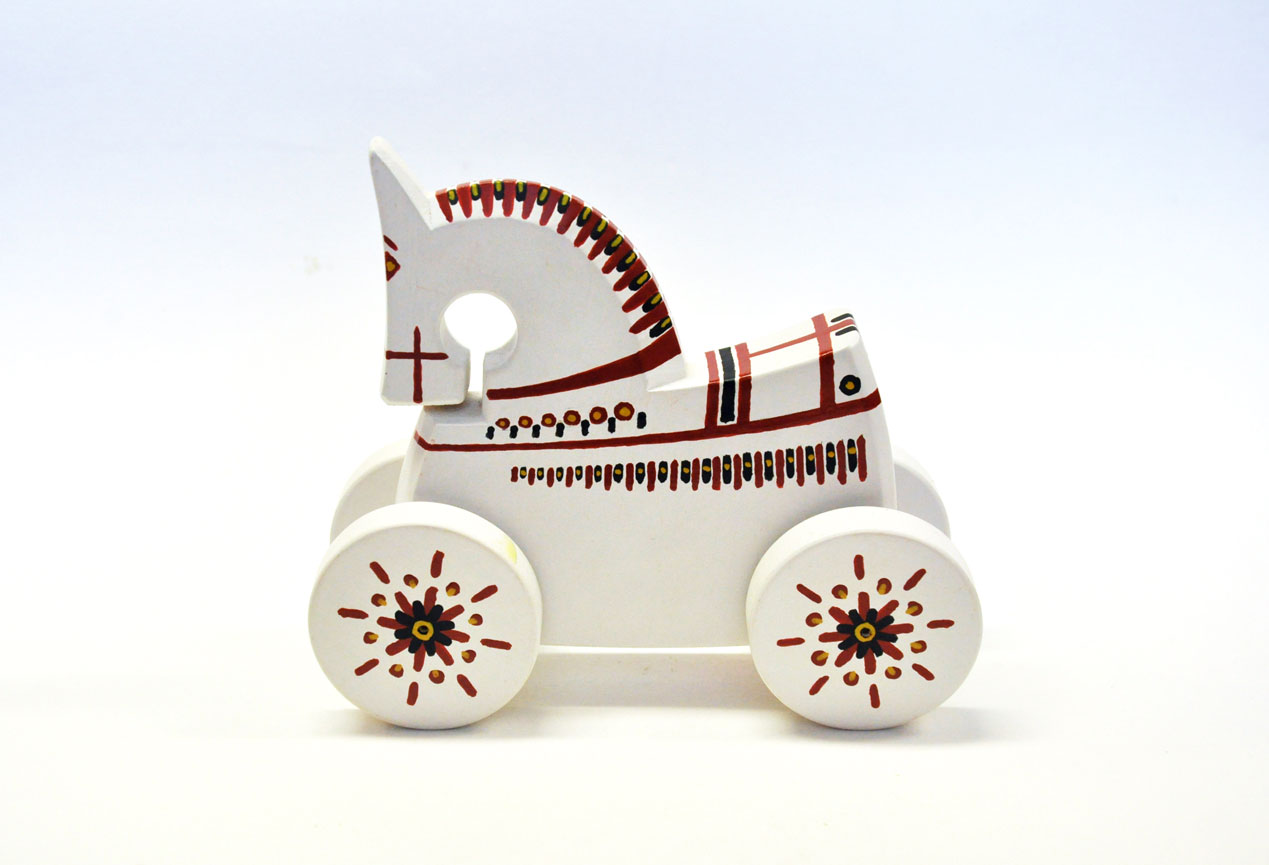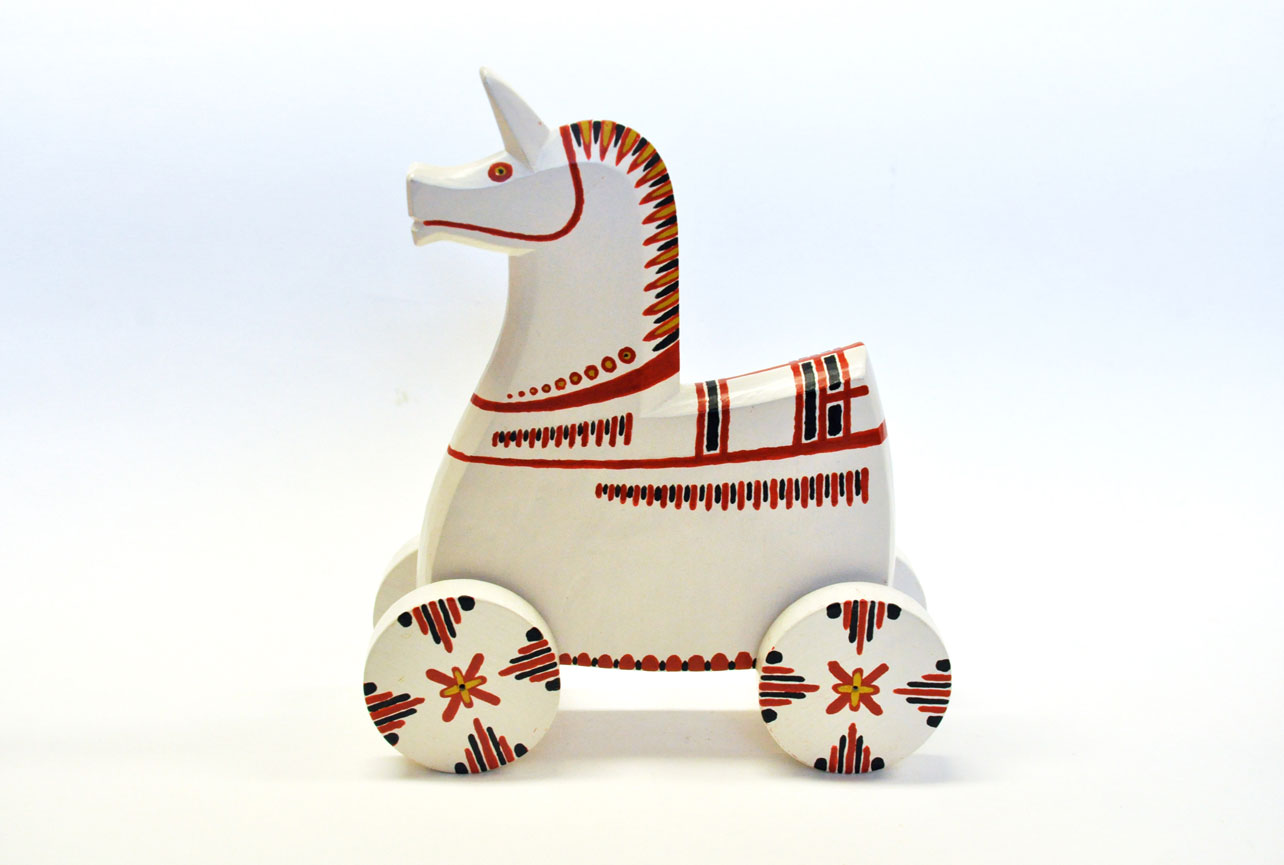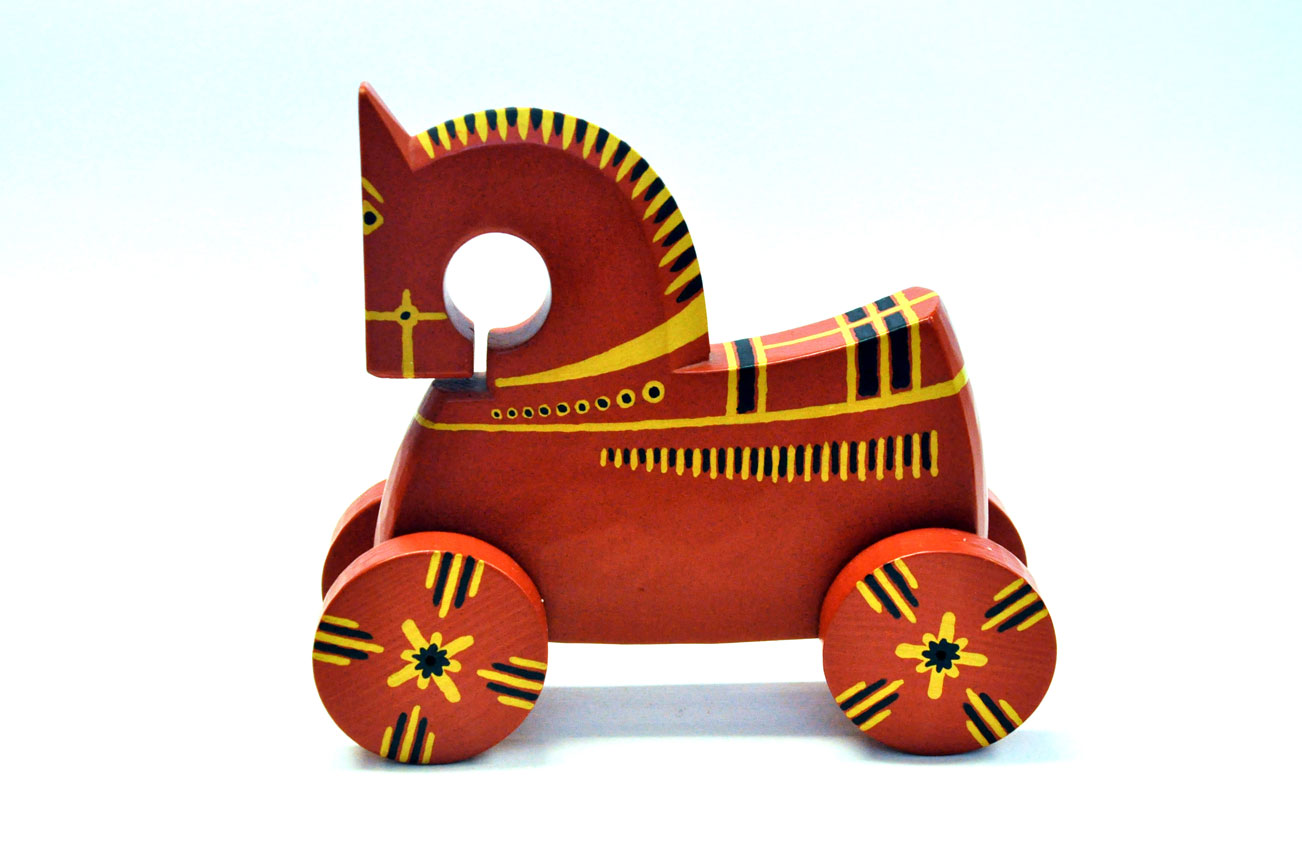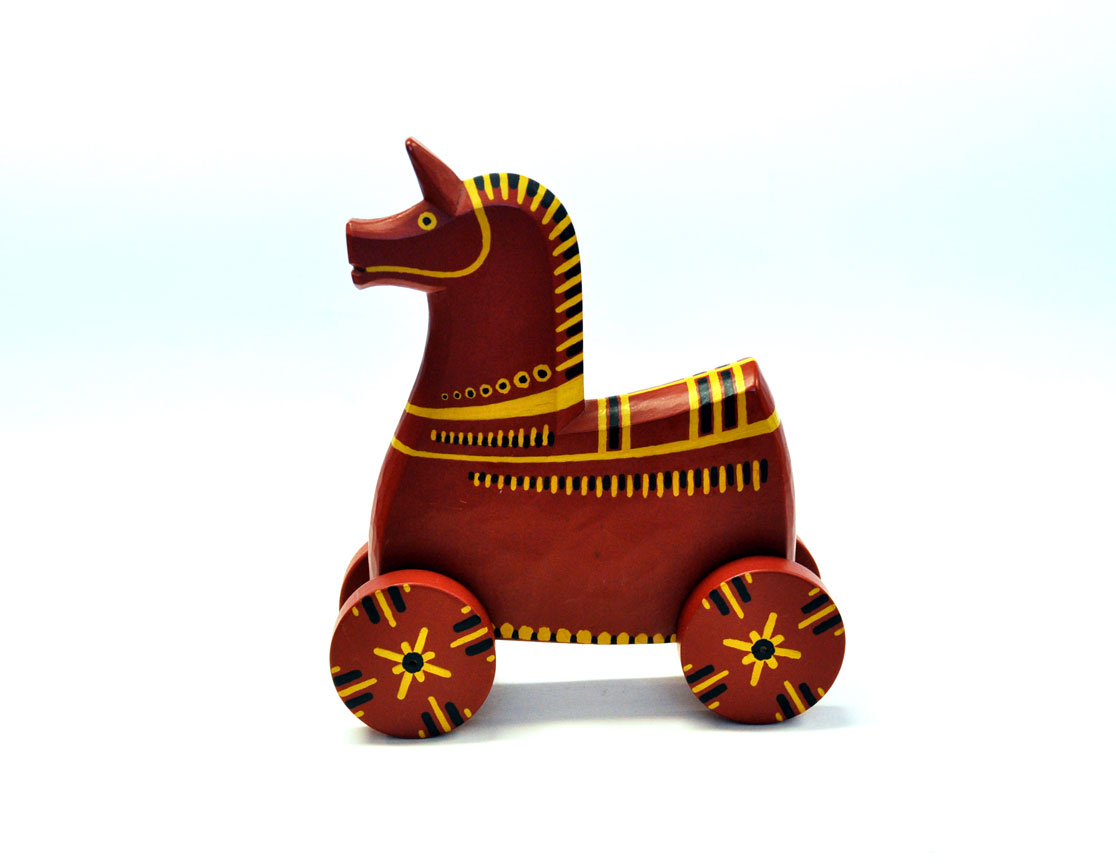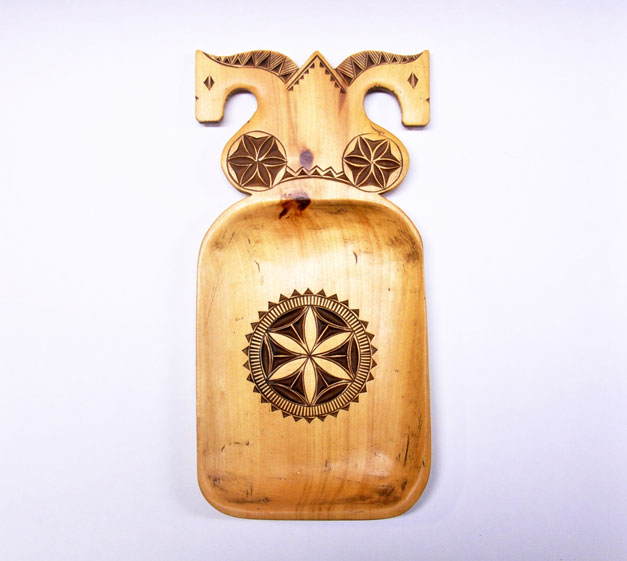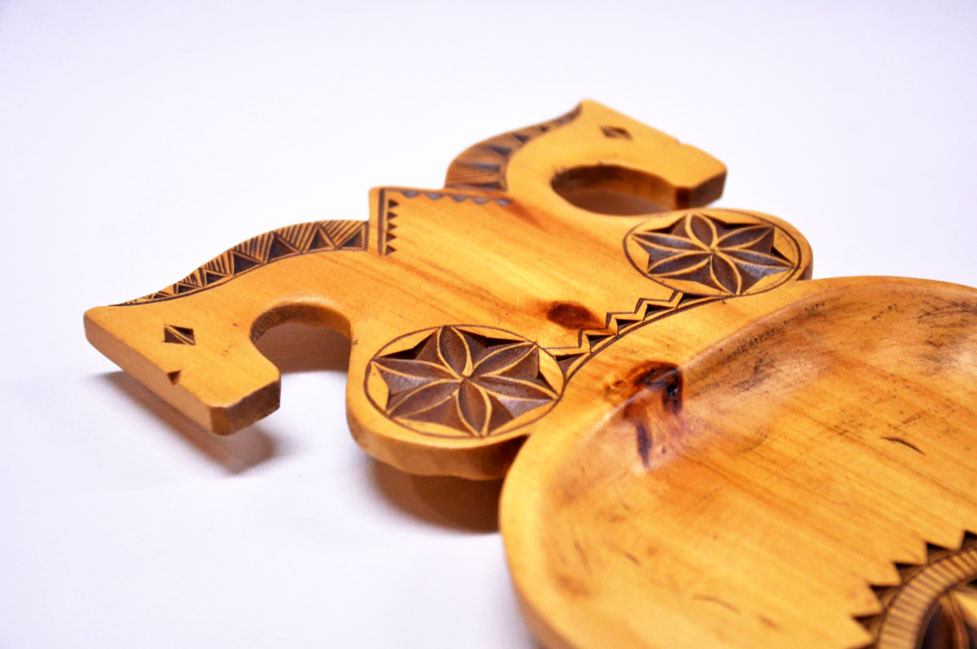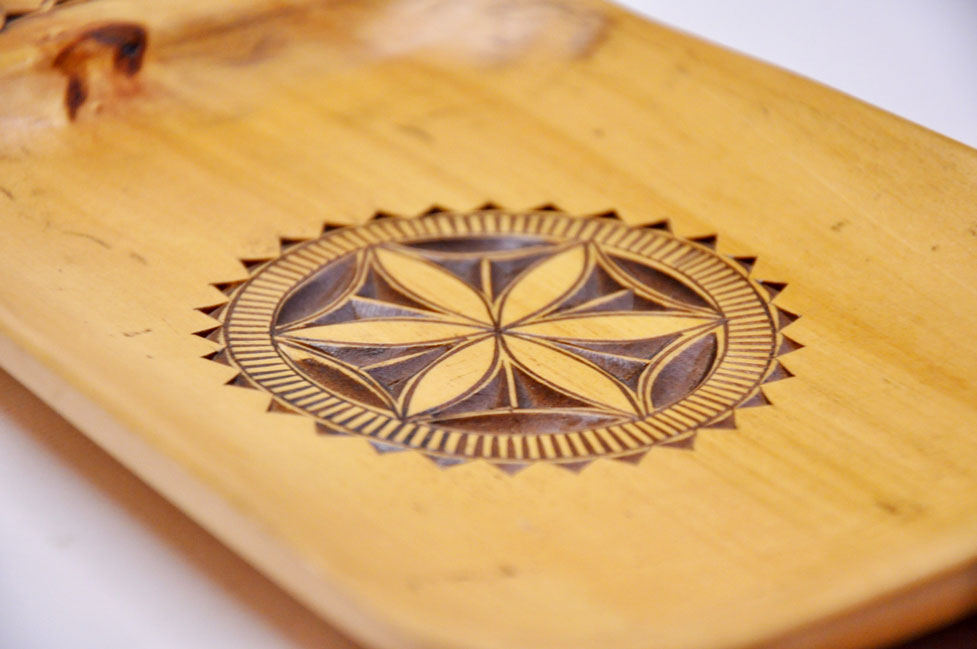The horse is closely related to the sun and its path across the sky and, in turn, to the energy that makes plants grow, to the very quality of the soil, and thus to economic prosperity itself. In Sweden, the little painted horses from the Dalecarlia region are decorated with intricate floral motifs to bring good fortune to their owners.
In the northern Russian countryside, superstitious farmers placed their houses – izbas – under the protection of the horse to ensure good harvests and the health on their families. In the Middle Ages, the construction ritual around building a new house sometimes involved a sacrifice – a horse skull was symbolically buried under the foundations. This rite was later replaced by carving a horse head – konyok – at one or both ends of the roof ridge to watch over the road and the forest. This decorative motif was sometimes accompanied by other symbols of prosperity and luck, including rosettes and solar disks.
Dala Horses
wood carving and paint, early 21st century, Dalarna County, Sweden
Herd of Horses
wood carving and paint, ca. 2008, Vologda, Russia
Double Horse Trencher
wood carving and staining, ca.2012, Western Ukraine
This Ukrainian platter features two important symbols of domestic protection: horses on the handle, and six-pointed flowers which are one of the symbols of Perun, the Slavic god of thunder. This sign, which can also be found on houses, is meant to ensure the family’s safety by repelling lightning.

